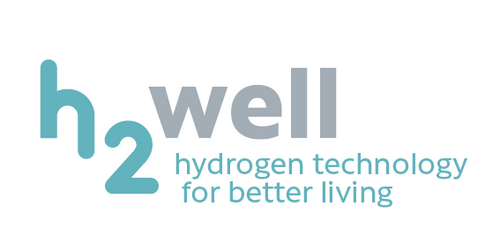Green Hydrogen: Researching Sustainable Infrastructure
In the process of the energy revolution, the state of Thuringia consistently relies on the expertise of the Bauhaus-Universität Weimar; in addition to pilot projects in Apolda and Sonneberg, the local production of green hydrogen is now being tested for use in public transport in Weimar. Professor Mark Jensch, head of the Energy Systems Group in the Faculty of Civil Engineering, will be acting as accompanying academic and providing scientific support for the joint project between Thüringer Energie AG (TEAG), the Stadtwerke Weimar Stadtversorgungs GmbH and the Stadtwirtschaft Weimar GmbH.
The project partners agree that hydrogen plays a critical role in ensuring the success of the energy and mobility revolution. Hydrogen is slated for use as fuel in Weimar’s local public transport system (ÖPNV) in an upcoming pilot project, leading to a drastic reduction in CO2 emissions. »A prerequisite for the project is that the hydrogen must actually be ›green‹, meaning it produces zero emissions and is created in an environmentally-friendly manner«, explains Prof. Jentsch from the Bauhaus-Universität Weimar.
One of the ways to produce green hydrogen is through the electrolysis process. This process breaks down water into its hydrogen and oxygen components by using an electrical current. The electrical energy used is converted into chemical energy and stored in the hydrogen. »The process is only zero emission, however, if it comes from renewable energy sources«, he continues. Hence, an electrolysis plant will be installed on the property of the Stadtwirtschaft Weimar and will operate using environmentally-friendly generated energy.
Prof. Jentsch and his team are supporting the project partners by taking on an advisory and research role to help determine the optimal operating conditions for the Weimar electrolysis plant through scientific calculations and simulation studies before the plant itself is even built. The findings on the electrolyzer’s mode of operation will initially be tested in parallel on a small scale in the Energy Systems Group’s »Wasserstofflabor«. A new large-scale device (funded by the Federal Ministry of Education and Research (BMBF)), is being used for this purpose and is being set in the Coudraystraße 13c building in Weimar: A laboratory electrolyzer that generates an electrical output of 5 kW.
Years of Experience in »Green Hydrogen«
Similar to the »Masterplan Elektromobilität für Thüringen 2030« (Electromobility Master Plan for Thuringia 2030)(2018, Department of Transport System Planning), the »Wasserstoffstrategie für das Land Thüringen« (Hydrogen Strategy for the State of Thuringia) (2019, Energy Systems Group) is based on expertise from the Bauhaus-Institute for Infrastructure Solutions (b.is) at the Bauhaus-Universität Weimar. Through this project, the university is actively helping shape the energy and mobility revolution in Thuringia. The project is aiming to transform the transport and energy supply systems and move towards a sustainable, zero emission structure.
Integrating green hydrogen into existing infrastructure systems is the primary focus of Prof. Jentsch, head of the endowed Energy Systems Group. The aim is to locally produce hydrogen using renewable energy sources and to use it in the immediate region. The department’s hydrogen-based research projects, generation plants, filling station, energy storage systems and novel heating systems are developed and implemented together with industrial partners. Under Prof. Jentsch’s leadership, the first model projects have already been launched in Apolda and Sonneberg as part of the »Forschungsverbundes h2-well«, which is being supported with 15 million euros from the BMBF. Together with the Transport System Planning Department, the Energy Systems Group has also initiated a feasibility study for a hydrogen-powered train in Schwarzatal.
Further information can be found on the Energy Systems Group webpage: https://www.uni-weimar.de/de/bauingenieurwesen/professuren/energiesysteme/
For questions, please contact Prof. Dr. Jensch, Bauhaus-Universität Weimar, Faculty of Civil Engineering, Energy Systems Group by phone (+49 (0) 36 43 / 58 46 32) or e-mail (mark.jentsch[at]uni-weimar.de).


